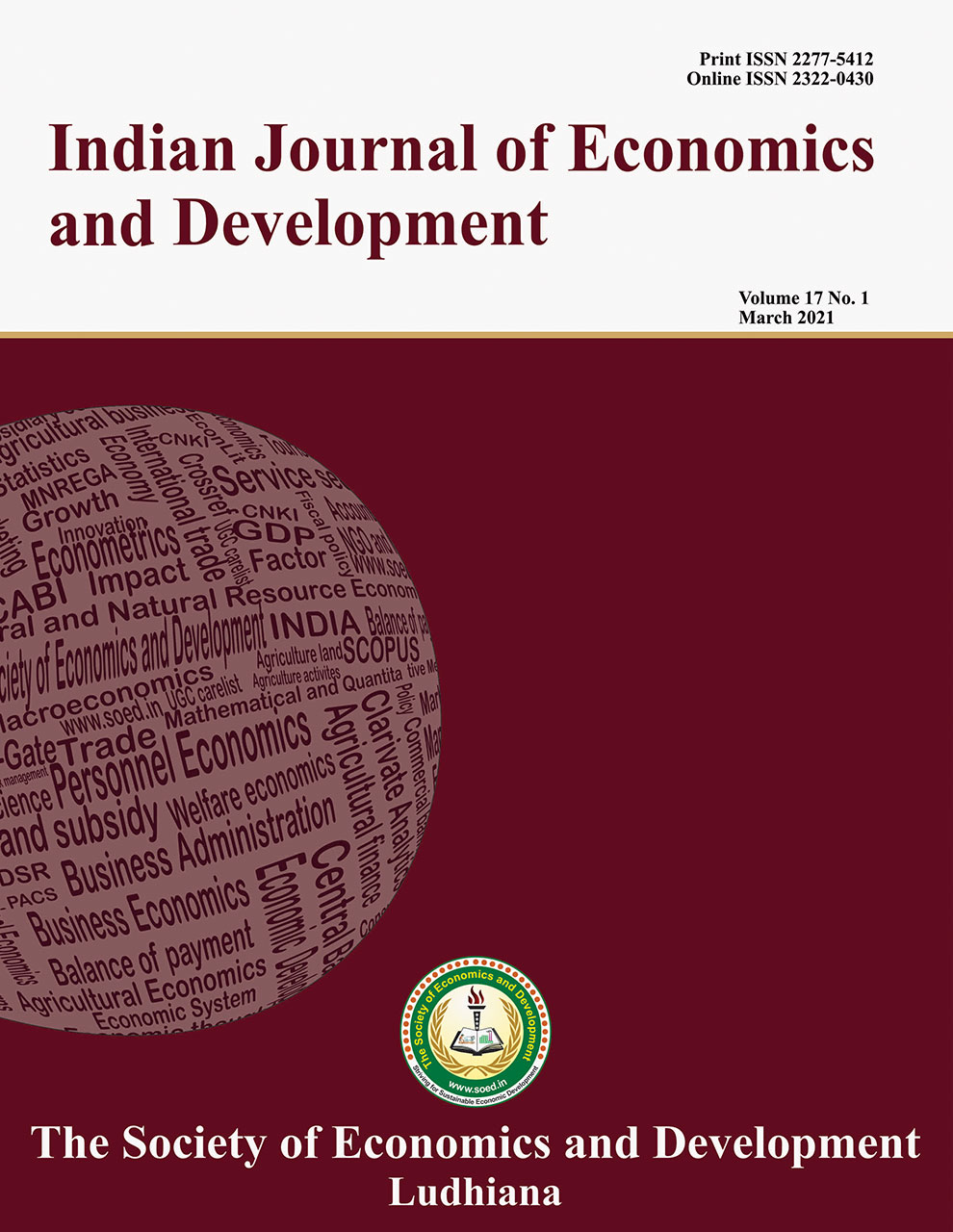Issues of Access to Primary Education under Sarva Siksha Abhiyan (SSA) in India: An Inter-State Analysis

Price: ₹ 500
Author: Department of Economics, DAV College, Chandigarh.
Author Address: Associate Professor and Head – Department of Economics, DAV College, Chandigarh.
Keywords: Access, Gini-coefficient, Inclusion, Inequality, Primary Education, SSA
Abstract
Effective access to elementary education is considered as one of the central components especially for those who are excluded in the process of socio-economic development. The paper attempts to explore the issue of access to primary education under Sarva Siksha Abhiyan (SSA)in India since the provision of equal access to education is a huge quantitative challenge. The study is based on a panel dataset for the period of 2006-07 to 2015-16, at the state level. The present study uses Gini-coefficient to measure inequalities in educational opportunities. It has been found that the access to educational opportunities is still not free from inequalities, despite improvement in the infrastructural facilities and enrolment ratios under SSA. There is evidence of wide variations in access to primary education across states. States with low income and low literacy rates lagged behind in the process of universal access to primary education at large. Thus, there is a need to adopt more inclusive and multi-sectoral policies for addressing the issue of inequality in access to primary education.
Description
The Indian Journal of Economics and Development (2019) 15(1), 117-122
DOI: 10.5958/2322-0430.2019.00014.3
Indexed in Clarivate Analytics (ESCI)
Harvinder Kaur , Vinod Kumar and Shelly Dahiya
Professor of Economics, Department of Distance Education, Punjabi University, Patiala.
Associate Professor and Head – Department of Economics, DAV College, Chandigarh.
Ph.D Research Scholar, Department of Economics, Punjabi University, Patiala.
*Corresponding author’s email: shellydahiya88@gmail.com



